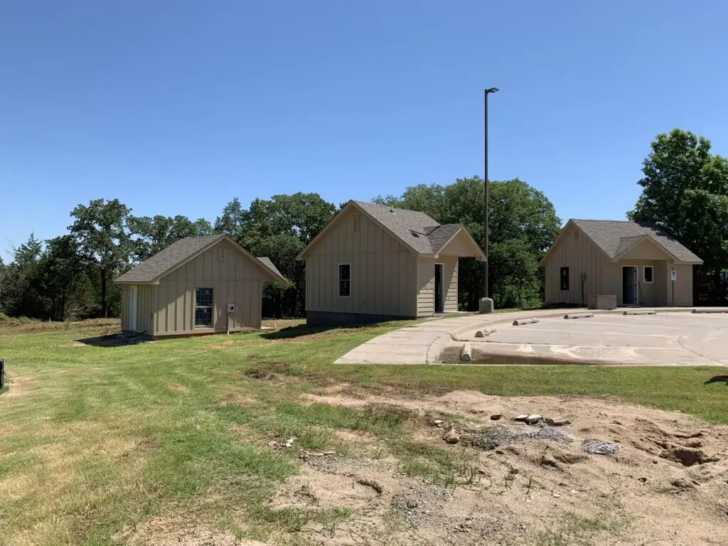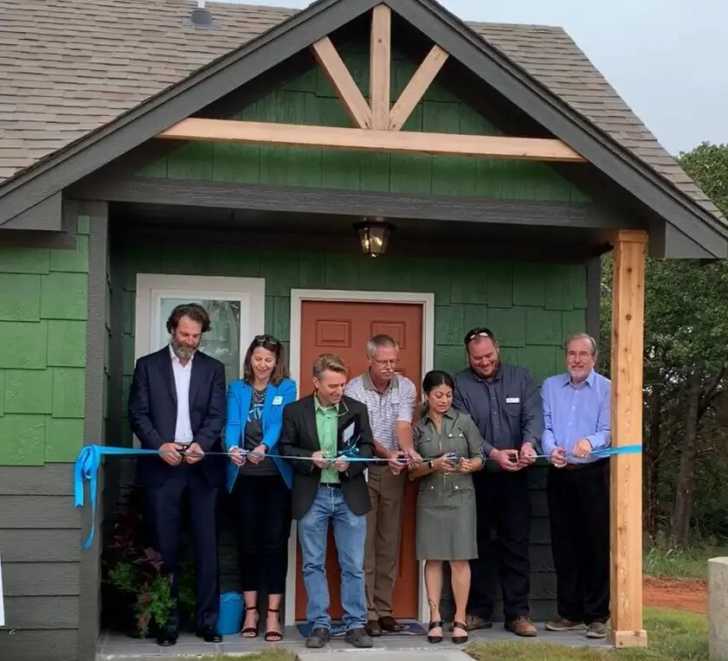Some children spend their entire childhood in foster care and after they reach a certain age, they age-out of the foster care system. Have you ever wondered what those teens do that are now living on their own? It seems as if Pivot Inc also had the same question and they couldn’t find clear answers, so they decided to get the answers for all of us.
They did more than learn about it, they decided to do something about it. They built tiny homes beside their offices in Oklahoma so teens that were no longer in the foster care system had a place to stay. Those teens could also come to the non-profit to ask questions or take advantage of other services from an organization that “advocates, educates, intervenes and counsels youth and families to make a positive difference in their lives.”

They enlisted the help of volunteers to build and furnish tiny homes. Those little homes are going to make a big difference for the kids who live in them.
“Having a bed’s gonna be different,” says Carter, 19 years old. “I sleep on a couch right now, so I’ve got a lot of back problems from it.”
Carter’s mom died when he was only 10 and his dad is in prison. Now that he found himself living outside of the foster care system, he moved into a homeless shelter, did some couch surfing and lived with his sister’s adoptive family for a while. There are many other homeless teens finding themselves in similar situations.

When these young adults experience this type of instability without a family to care for them or the resources they need, it makes it hard for them to grow into stable adults. That is why this project is working. It is doing more than giving them a place to live, it’s teaching them how to live on their own and deal with all that life throws their way.
When they first move into the tiny homes, they can stay for 2 months without charge. The price of the rent increases from $100 at 2 months to $150 at 5 months. If they stay there for longer than 6 months, the price stays at $150 and they can stay as long as necessary.

When the ribbon-cutting took place, Jennifer Goodrich, the President, and CEO of Pivot talked about the importance of what they provided and talked about what it was missing.
“[We are] able to serve them in a way that, again, lets them show that they have the same talents, skills that any other young person in our community has,” Goodrich told journalists that covered the event.
It’s nice to see when someone is willing to step up to the plate and make a difference in the lives of those who need it. Pivot says that the next phase of tiny homes will start soon after the permitting is complete.













